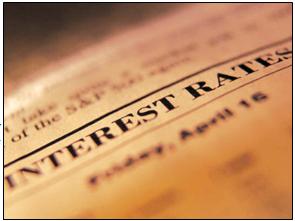“Insanity is doing the same thing over and over again and expecting a different result.” –Albert Einstein
By Isaac MacMillen

In the decade prior to the 2008 slump, the Fed cut interest rates time and again in order to “jump-start” the economy by encouraging consumers to borrow at the historically low rates. Spurred on by these easy loans, consumers racked up billions of deepening debt which they could only barely afford. Then as soon as the economy began slumping again, these same people suddenly discovered that they could no longer afford even to try to stay afloat. The very loans that had helped them obtain greater wealth than they thought possible were now preventing them from keeping it.
And meanwhile, as a result of the loose dollar policies, the economy experienced an historic asset bubble in housing, and then a commodities bubble. And inflation began its inevitable ascent.
Even when oil was shooting up to $150/barrel, the Fed would not raise interest rates—its primary means for combating inflation. What data were they looking at that had to do with the financial system? What were they so afraid of? And why did the American people’s own government keep them in the dark about the financial catastrophe looming ominously—and obviously—on the horizon?
At the time, it was expected by most reliable analysts, economists, and commentators that raising interest rates would help the economy in the long run.
• In May of this year, Martin Hutchinson seemed to almost assume a rate increase, saying that: “the conclusion is inevitable: The nation’s central bank will soon have to reverse course and start raising interest rates.”
• Larry Kudlow added that “money-market futures are predicting Fed rate hikes next year and maybe beginning later this year. That would lend strength to the dollar. And that in turn would contain inflation. “
• John Berry in June noted that “[inflation] warnings have caused many investors to anticipate several quarter-percentage-point increases in the Fed’s target rate for overnight loans — now 2 percent — later this year, according to federal funds futures contracts.”
• Anna Schwartz, co-author with Milton Friedman of the classic “The Monetary History of the United States,” had the following to say to the Wall Street Journal in August:
“If you investigate individually the manias that the market has so dubbed over the years, in every case, it was expansive monetary policy that generated the boom in an asset. The particular asset varied from one boom to another. But the basic underlying propagator was too-easy monetary policy and too-low interest rates that induced ordinary people to say, well, it’s so cheap to acquire whatever is the object of desire in an asset boom, and go ahead and acquire that object. And then of course if monetary policy tightens, the boom collapses.”
She also had words of caution for those who would trust the Fed for a solution:
“In general, it’s easier for a central bank to be accommodative, to be loose, to be promoting conditions that make everybody feel that things are going well.”
Playing Dr. Feelgood is exactly what the Fed insisted upon doing then—and continues to insist upon doing now. The exact same as its scheme under Alan Greenspan, its plan is to ignore history and continue to keep the rates low, creating easy credit and leading to unsustainable mortgages. What many leftist pundits are decrying as “failed capitalism” is nothing more than flawed socialist experimentation.
The folly behind the Fed’s actions is sadly accepted by many. It is clear that eliminating the Fed’s dual mandate is in order—any government intervention in free markets only causes further problems— but short of that, the least one could hope for is an economically-helpful increase in interest rates. But it looks like Americans will have to wait—while the Fed continues its descent even deeper into abject insanity.
Isaac MacMillen is a contributing editor of ALG News Bureau.

